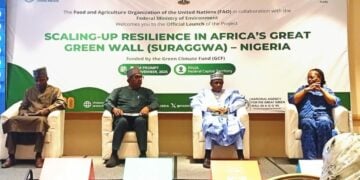The Federal ministry of Housing and Urban Development is planning to collaborate with the World Bank to draft policy on increasing National Land Documentation and Titling Programme in Nigeria.
This initiative tagged, ‘Nigerian Livable Cities,’ is to transform land into a substantial economic asset by significantly increasing land formalisation in the country.
The ministry stated that, with Current Land Registration, only less than 10 per cent of Nigeria’s land is currently registered and titled, restricting landowners from leveraging their properties for economic benefits.
The goal of the collaboration is to increase land formalisation to 50 per cent within the next decade, potentially unlocking over $300 billion in capital while stressing that the comprehensive sub-programs initiative includes sub-programs in housing and land management, urban services delivery, climate change action, urban management and finance, and transportation.
Speaking on the collaboration, minister of housing and Urban Development, Ahmed Dangiwa announced that the ministry has drafted a framework for the program, which will be shared with the World Bank Group for adoption and implementation.
He noted that, this initiative aligns with the Ministry’s land reform strategy and complements the establishment of a National Land Commission to operationalise the Land Use Act.
He added that the World Bank’s Nigeria Urban Livability and Mobility Programmatic Analytics and Advisory Services (ULM PASA) will provide technical support to Federal and State governments as this aims to improve development policies and programmes in selected Nigerian cities, enhancing their livability, competitiveness, and resilience.
The minister highlighted several Federal Government initiatives to create livable and sustainable cities, including: Renewed Hope Cities and Estates Programme: Aiming to deliver 50,000 housing units in its first phase, Urban Planning and Design: Emphasising green building techniques, efficient waste management, and the creation of green spaces.
The initiative aims to propel Nigerian cities towards sustainable, inclusive, and resilient growth through deliberate planning and strategic partnerships.





